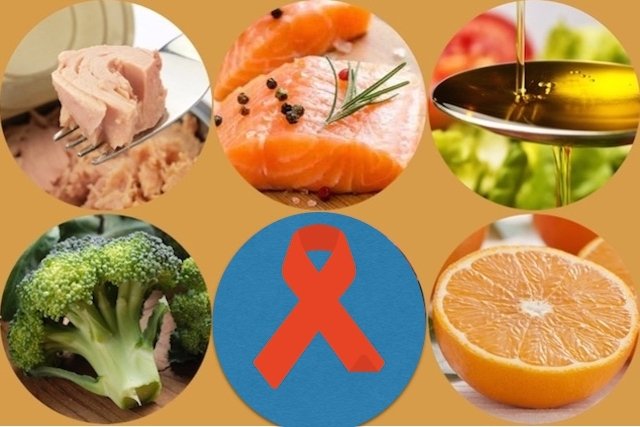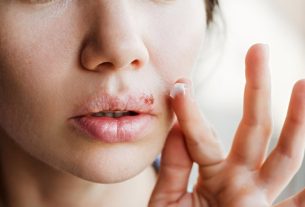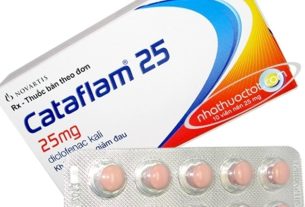The diet of people with HIV infection or AIDS should be varied and balanced, giving priority to the consumption of fruits, vegetables, grains, proteins, healthy fats and cereals rich in fiber, in addition to avoiding the consumption of processed foods, rich in in fats and sugars.
HIV is the human immunodeficiency virus that can be transmitted sexually, blood transfusion or from mother to baby during pregnancy or breastfeeding, for example. This virus reduces the action of the immune system, making it more difficult for the body to fight infections, which can progress to AIDS, which is the most serious form of the infection in which the person presents opportunistic infections. Understand better what HIV and AIDS are.
For this reason, a healthy diet is essential to help the body strengthen the immune system, slow the progression of the disease, maintain weight, promote the absorption of medications to treat HIV, reduce the side effects of antiretrovirals, and improve the quality of life.

Foods that should be avoided
People infected with HIV or who have AIDS should avoid consuming foods that cause inflammation in the body, that is, those that are rich in sodium, sugar and/or saturated and trans fats, such as:
- Cakes, cookies, ice cream and sweets;
- Sausages, such as pepperoni, sausage, chorizo and bacon;
- Lard;
- Sauces, such as ketchup, mayonnaise or aioli;
- Frozen foods, such as lasagna, nuggets or burgers.
Likewise, it is very important to maintain good food hygiene, as the consumption of contaminated food or water can cause gastrointestinal infections, which in the case of people with this disease can be aggravated and complicated due to the fragility of the immune system.
For this reason, it is also important to avoid:
- Raw or undercooked meat, fish and seafood, such as sushi, ceviche or roast beef;
- Raw eggs or preparations containing raw eggs;
- Unpasteurized milk and derivatives.
In addition, hygiene measures must be adopted, such as washing hands and kitchen utensils thoroughly; keep raw foods separate from ready-to-eat foods, such as fruits and vegetables, for example, cook foods thoroughly and refrigerate or freeze foods that may spoil within 2 hours of cooking or purchasing. See how to freeze food correctly.
What to eat
In the case of HIV infection or AIDS, a healthy and balanced diet must be maintained, which includes the consumption of fruits, vegetables, legumes, proteins, cereals, dairy products and their derivatives, and healthy fats.
The portions of each food group depend on the person’s nutritional status, and it is important to consult a nutritionist to indicate the appropriate amounts. See how to eat healthily.
Make an appointment with a nutritionist in the nearest region:
Taking care of your health has never been easier!
Foods that strengthen the immune system
There are some foods with anti-inflammatory and antioxidant action that can be included in the diet that help strengthen the immune system, such as:
- Omega 3this type of fat can be found in foods such as sardines, salmon, tuna, chia seeds, walnuts and flaxseed;
- Seleniumfound in Brazil nuts, wheat, rice, egg yolks, sunflower seeds, chicken, bread, cheese, cabbage and wheat flour;
- Zincmineral found in oysters, shrimp, beef, chicken, turkey and fish, nuts, wheat germ and whole grains;
- Vitamin Cwhich can be found in orange, tangerine, pineapple, lemon, strawberry, papaya, melon, mango, kiwi, broccoli and tomato;
- Vitamin Efound in sunflower seeds, hazelnuts, peanuts, almonds, pistachios, mango and olive oil;
- Vitamin A, carrot, sweet potato, mango, spinach, melon, beetroot, chard, red pepper, broccoli, lettuce and egg. Check out the complete list of anti-inflammatory foods.
In addition to these nutrients, the consumption of probiotic foods, which are live microorganisms that help maintain healthy intestinal flora, also help to modulate the immune response at the level of the intestinal mucosa and, therefore, the entire body.
These types of microorganisms are found in foods such as natural yogurt and fermented milks such as kefir or yakult, for example. See other foods with probiotic properties.
Does HIV/AIDS make you gain weight or lose weight?
HIV/AIDS can cause a person to lose weight due to several factors, including:
- Loss of appetitewhich can be caused by the person having an infection or fever, for example, experiencing depression, or as a side effect of antiretroviral medications, which can cause diarrhea, nausea and vomiting;
- Low nutrient absorption, as people with HIV infection or AIDS often suffer from frequent diarrhea, a situation that alters the absorption of food at the intestinal level. Furthermore, HIV can also cause damage to intestinal cells, affecting the absorption of carbohydrates and fats;
- Changes in metabolismdue to lack of nutrients;
- Infections and chronic diseasesbecause when the body suffers from a disease it needs a greater amount of nutrients, which can be affected by all the conditions mentioned above.
In addition to weight loss, people also experience loss of muscle mass, further affecting the immune system.
Do antiretrovirals lose weight?
Antiretrovirals for the treatment of HIV or AIDS can cause lipodystrophy, which is the redistribution of body fat, allowing you to lose fat in your arms and legs but gain abdominal fat.
Likewise, metabolic changes can also occur, which can increase cholesterol and triglycerides, as well as create insulin resistance, increasing the risk of suffering from diabetes.
Essential dietary care
In general, a healthy, varied and colorful diet is recommended, and it is important to keep your weight well controlled to avoid losing too much weight and becoming malnourished or excessive weight gain, which can increase the risk of cardiovascular complications.
Therefore, the consumption of foods with anti-inflammatory potential, such as orange, acerola and linseed, and also those rich in omega 3, such as tuna, sardines and chia, are strongly recommended to protect the liver, pancreas, heart and intestine. Find more examples at: Foods that help fight inflammation.
Another important point in HIV-positive people’s diet is hygiene, washing their hands and the food that will be consumed very well. This is extremely important because it reduces the risk of contamination with microorganisms, such as Giardia e Salmonella, and consequently the risk of gastroenteritis. Furthermore, it is very important to avoid consuming raw foods, such as carpaccio, sushi, roast beef or any undercooked food due to the greater risk of contamination and intestinal infection.
What to do to alleviate symptoms
In the table below are some strategies that can help alleviate the most common symptoms that people with HIV/AIDS tend to present, whether associated with an infection or due to side effects of antiretroviral drugs.
It is important that in the event of weight loss or presentation of any of the symptoms mentioned above, a nutritionist is consulted to carry out an assessment and recommend a nutritional plan adapted to the person’s needs.
Depending on nutritional status, you may need to supplement with vitamins and minerals or take a nutritional supplement that provides more calories and nutrients.

Sign up for our newsletter and stay up to date with exclusive news
that can transform your routine!
Warning: Undefined array key "title" in /home/storelat/public_html/wp-content/plugins/link-whisper-premium/templates/frontend/related-posts.php on line 12
Warning: Undefined array key "title_tag" in /home/storelat/public_html/wp-content/plugins/link-whisper-premium/templates/frontend/related-posts.php on line 13



